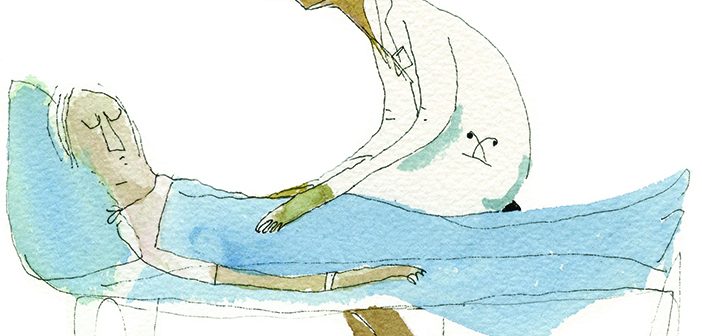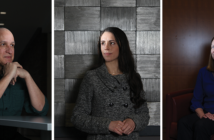A resident grapples with death, as a doctor and as a daughter.
If I only knew then what I know now.
As I drove home after a long overnight shift on inpatient adult medicine, this thought engulfed me, seeming to fill every crevice of my mind, evoking a strange mix of regret and calm.
During the night, I had cared for a dying elderly patient as her family stood vigil. After a tumultuous hospital course, the patient had entered multiorgan failure and my compatriots taking care of her during the day had held a series of family meetings that led to her current CMO (comfort measures only) code status. “She may die tonight,” I was alerted during our sign out. Her family members knew of her somber prognosis, and we were initiating her on a morphine drip for pain and terminal dyspnea when I went to introduce myself.
Through the course of the night, I checked on them at regular intervals, gathering fragments about the patient’s life and what she had meant to her children. It is an unfamiliar feeling to “manage” the dying process of a patient as a resident when the majority of your medical training thus far has focused on interventions to extend life. As it turns out, it can often be the most valuable skill the profession provides. Her eldest daughter paced around her bed, asking detailed questions about the patient’s current symptoms and expected course, while her youngest sat quietly to the side, focusing on her mother’s face while holding her hand and stroking it gently.
Around 2 a.m. the nurse paged me to evaluate the patient. She appeared to have stopped breathing. I entered the room, feeling the weight of the silence of her children. I performed the methodical exam my senior had reviewed with me earlier in the night, and verbally announced the time of death. I lingered for a few moments to grieve with her children as they grappled with the finality of their mother’s passing, then excused myself to give them time alone.
As saddened as I was for this patient and her children, walking down the sterile hospital hallway to our call room I found myself strangely envious. Seven years prior, as a junior in college, I lost my own mother to non-Hodgkin lymphoma. Despite her initially positive prognosis, she declined rapidly over six months with profound neurological impairment secondary to multiple brain metastases. She underwent numerous rounds of chemotherapy followed by whole brain radiation. I had visited her in India several times during those months, but only my father was present in the hospital at her death.
I am told my mother did not suffer at the end. Knowing what I know now, I struggle to reconcile with this reassurance, yet I am unable to alter the course of her illness or the end of her life. The burden of knowledge is intolerable. But when the waves of guilt finally recede, as I crawl into bed in the early hours of the morning, in the stillness I find some solace in the night that has transpired under my watch.




